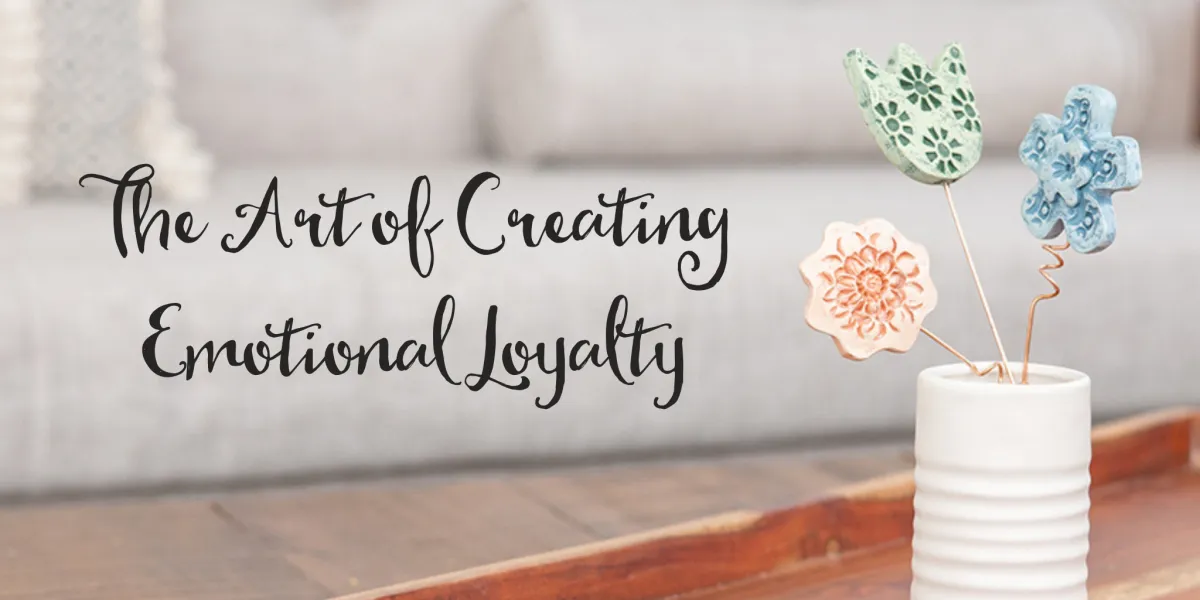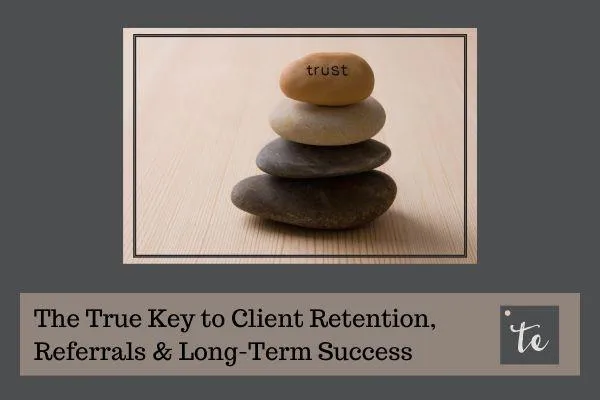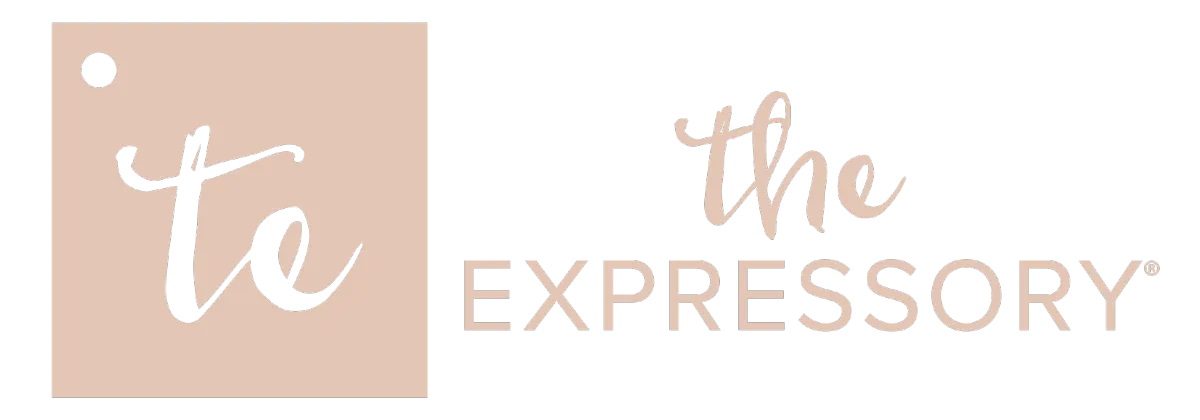
What Swimming Teaches Us About Team Relationships
In my latest video, I break down how swimming teaches us the importance of these relationship-building efforts and the specifics of what we as leaders need to nurture with our teams.
Holiday Gift Insights - What Everyone Else Is Doing
In an effort to simplify the decision-making process, we're sharing some of the trends we've seen with gifting over the years. We're even sharing our best seller and why that gift had such success.
What Makes A Successful Holiday Gift? The Travel Bag Edition
Last year we had the opportunity to work with one of our clients in the travel and tourism space to design an experience that delivered their highest engagement yet.

The True Key to Client Retention, Referrals & Long-Term Success
Loyalty isn’t built from a transaction. It doesn’t happen in a sales funnel, a marketing email, or a one-time, well-crafted client experience. True loyalty, the deep, unwavering kind that drives referrals, retention, and lifelong business success, is emotional. As trust becomes more fragile and attention more scattered, businesses that prioritize emotional loyalty will be the ones that thrive.
Yet, most businesses overlook the opportunity.
They chase conversions instead of connections. They prioritize reach over resonance. They focus on what they’re selling, not how they’re making people feel. But as M. Shannon Hernandez, founder of Joyful Business Revolution, puts it:
“In your messaging, every piece of content you put out, you’re either building trust or creating distrust.”
Shannon is a leading voice in joy-driven marketing, helping business owners ditch manipulative sales tactics in favor of real, lasting relationships. Her work focuses on building trust through authenticity, strategic content, and human connection. She has a philosophy that aligns perfectly with how emotional loyalty fuels business growth.
After sitting down with her for a conversation on how trust, engagement, and transparency impact business success, the key takeaway was clear: loyalty isn’t given—it’s earned. And if you’re not focusing on emotional loyalty, you’re already losing clients (and revenue) without even realizing it.
The Trust Triad
Loyalty isn’t about locking someone into a contract or dazzling them with the impressive results you believe will keep them. It’s about trust and the strong emotional connection you create.
When I asked Shannon how she teaches her clients to create this type of emotional loyalty she described her Trust Triad, a three-part framework for building relationships that last.
1. Trust in You (The Person or The Expert)
People don’t just buy services, they buy relationships. If clients don’t believe in you as a person, they won’t trust your expertise.
“You can’t build trust in a freaking 10-second clip,” Shannon points out, referring to the growing reliance on short-form content. True connection takes time, transparency, and consistency. When you openly share your journey, expertise, and even struggles, people feel that honesty comes through, and they feel as if they know you better. That’s what makes them stick around.
2. Trust in the Process
The second piece of the triad is trust in how you work. Clients want to know that your process is sound, that they’re in capable hands, and that they’re making the right choice.
That means clear communication, realistic expectations, and follow-through. “People who pay you want to know you have your sh*t figured out,” Shannon says. If they don’t trust the process, they won’t commit.
3. Trust in Themselves
This last one is interesting and not as easy. Your clients need to trust themselves, that they’re making the right decision, that they can take action, and that this investment will work for them.
Most businesses focus only on proving their value, but the real magic happens when you help clients believe in themselves. If they don’t trust their own ability to follow through, they won’t move forward—no matter how great your service is.
“How is your content helping them trust themselves enough to even take a small step?” Shannon asks.
When you empower clients to believe in their ability to create change, you aren’t just selling a service, you’re transforming their mindset. And that’s where loyalty starts.
At its core, Shannon’s Trust Triad mirrors the foundations of human connection described by social psychology, which helps us understand the way people build trust, form relationships, and decide where their loyalty belongs. It aligns with what research has shown is essential for strong, lasting bonds: the need to feel understood, validated, and cared for.
When people learn to trust you, they begin to feel they belong. There is usually some shared understanding they are feeling that leads them to be comfortable with you.
When they trust your process, it’s because you have in some way reassured them that their needs are valid and will be met. That they’ve made a smart choice.
When they trust themselves, it’s because you have helped them feel supported, capable (validated), and empowered—which deepens their emotional connection to you.
This is why emotional loyalty isn’t about features or sales tactics, it’s about relationships. Clients don’t stay because of what you do. They stay because of how they feel in your world.
Why Short-Term Thinking is Hurting Your Business
A lot of people, today, are impressed with engagement metrics (likes, shares, and impressions), but what do those actually mean? Nothing, if they don’t lead to real connections.
“Some of my posts that have brought in the most money,” Shannon reveals, “are from people who never commented and never acknowledged the post.”
The real metric that matters? Conversations. Sales calls. Relationships that lead to repeat business.
Social media, quick-hit content, and automated marketing funnels have conditioned businesses to chase surface-level engagement instead of investing in deep, meaningful interactions, over time. But the brands that are thriving, the ones with raving fans, loyal customers, and endless referrals—are the ones that prioritize consistent, relationship-first strategies.
“We want that dopamine hit,” Shannon warns, but digital engagement doesn’t equal trust.
Instead of chasing fleeting attention, focus on the long game. Build relationships before you need the sale. Be consistent. Stay personal.
Beyond Business
Shannon’s approach to marketing isn’t just about engagement, it’s about cultivating joy in business and in everyday relationships. She believes that when people feel good, they connect more deeply, trust more easily, and remain loyal longer. This philosophy is at the heart of her book, Practical Joy: Simple Tools to Cultivate More Joy Every Day, where she teaches how small, intentional actions can create a more fulfilling life.
This same principle applies to business. Clients don’t just stay because they’re satisfied—they stay because they feel valued, energized, and connected. And when businesses create positive, trust-driven experiences, they naturally foster emotional loyalty that lasts.
One of the ways Shannon puts this into practice is through her monthly Connection Dinners, where she brings business owners, and overall interesting people, together for meaningful conversations. These aren’t just networking events, they’re designed to create genuine, lasting relationships.
She started these dinners because she saw what so many of us see in business: conversations are getting shallower, digital distractions are pulling us away, and people are struggling to build truly meaningful connections. She wanted to create a space where business leaders could engage in deep, thoughtful discussions that strengthen relationships beyond transactional networking.
The structure she uses ensures meaningful connections and offers key lessons we can apply to business.
Each dinner has a single-word theme (Listening, Change), and guests receive an advance question to reflect on. This ensures deeper engagement by enabling all personalities to come prepared to participate.
Phones are generally nowhere in sight. While this is not a rule, it is modeled by many. Giving someone your full attention is a powerful trust-builder. When was the last time you engaged with a client or colleague without checking a screen?
Shannon introduces new and familiar faces at each dinner, creating a balance between strengthening existing relationships and expanding networks. In business, connecting people strategically makes you a trusted resource.
The event doesn’t end when dinner does. Shannon facilitates introductions and connections after the fact, ensuring the relationships continue. Business relationships work the same way—consistent, thoughtful follow-up is what turns a great first meeting into lasting loyalty.
Loyalty isn’t built in one great marketing campaign. It’s built over time, through trust, consistency, and human connection.
When you invest in real engagement, not just clicks, views, or fast sales, you create relationships that last a lifetime.
And those relationships? They’re the single greatest asset your business will ever have.
Reflect & Rebuild: 5 Key Questions for Leaders
If you’re serious about shifting your focus from short-term sales to long-term loyalty, start by reflecting on these five questions:
Are we prioritizing relationships over transactions?
If most of your interactions are about selling, you’re missing opportunities to build real connection.
Do our clients trust not just us, but themselves?
If they don’t feel confident in their decision-making, how can you empower them?
Is our content fostering connection—or just attention?
Is your messaging building relationships or just generating clicks?
Are we valuing long-term engagement over short-term wins?
Is your strategy built for retention?
Are we creating spaces for meaningful conversations?
Whether it’s in-person events, personal emails, or deeper content—how are you ensuring real conversations are happening?
Ready to create a loyalty-driven strategy for your business? Join us at one of The Expressory’s monthly Q&A sessions or schedule a strategy call to start building emotional loyalty that lasts.
Address:
1500 S. Sylvania Ave #106
Sturtevant WI 53177
Phone:
414.243.8971

